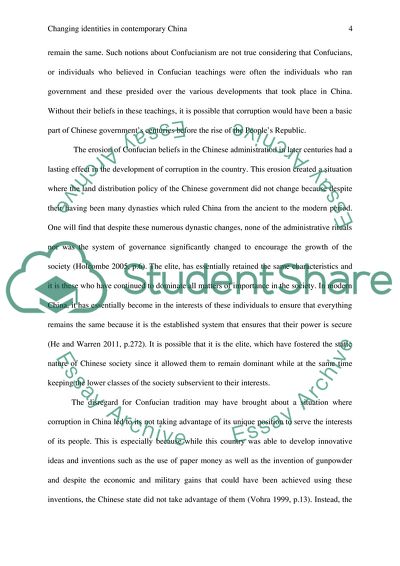Cite this document
(Changing Identities in Contemporary China Essay Example | Topics and Well Written Essays - 3250 words, n.d.)
Changing Identities in Contemporary China Essay Example | Topics and Well Written Essays - 3250 words. https://studentshare.org/history/1871991-tradition-and-transformation-changing-identities-in-contemporary-china
Changing Identities in Contemporary China Essay Example | Topics and Well Written Essays - 3250 words. https://studentshare.org/history/1871991-tradition-and-transformation-changing-identities-in-contemporary-china
(Changing Identities in Contemporary China Essay Example | Topics and Well Written Essays - 3250 Words)
Changing Identities in Contemporary China Essay Example | Topics and Well Written Essays - 3250 Words. https://studentshare.org/history/1871991-tradition-and-transformation-changing-identities-in-contemporary-china.
Changing Identities in Contemporary China Essay Example | Topics and Well Written Essays - 3250 Words. https://studentshare.org/history/1871991-tradition-and-transformation-changing-identities-in-contemporary-china.
“Changing Identities in Contemporary China Essay Example | Topics and Well Written Essays - 3250 Words”. https://studentshare.org/history/1871991-tradition-and-transformation-changing-identities-in-contemporary-china.


